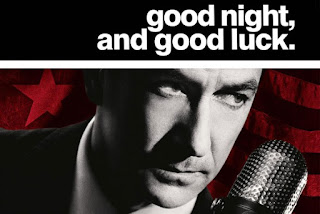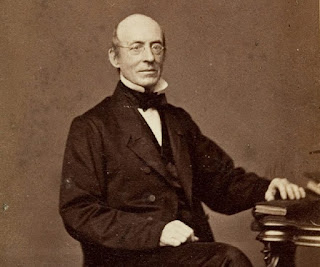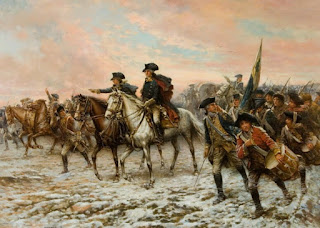What Is the Transhistoric Relationship Between the Press and the Government in a Society Aspiring to Democracy? (FINAL)
In this film, the scene is set by the Red Scare in the 1950's; a massive tidal wave of paranoia due to the rising threat of communism to the democracy of the United States. Suffering from delirium and political-based anxiety, the antagonist Senator Joseph McCarthy of Wisconsin inflicts even more panic on the people of the U.S. by accusing members of the government, education systems, and even the film industry of sympathizing with communist ideals and/or being Soviet spies. The protagonist of this film was reporter Edward Murrow, accompanied by Fred Friendly, who sought to expose McCarthy.
Expose McCarthy for what, you may ask? Joseph McCarthy was skilled in his own political game, McCarthyism. He was the king of the chess board and playing field that was the United States political atmosphere during the Red Scare. McCarthyism is characterized by fear mongering in relation to the communist scare enveloping the U.S. He turned families and friends against one another, plaguing everyone with the thought that their teachers, friends, and basically everyone could be communists, or Russian spies. For the citizens, this was terror. For McCarthy, this was a political tact. In the film, there were plenty of times that McCarthyism was proven to be a tactic of fear mongering.
When discussing possible topics in the conference room, a story of an Air Force man being ejected from the faction because his father was deemed a communist. His charges and the evidence were all sealed inside an envelope at his trial and that was the end of it. Originally, I thought, "this would be a great story," but the other newsmen thought otherwise. As a journalist, I believe they would have also agreed with me, but they were timid due to the threat of Joseph McCarthy. McCarthy had the power to end careers, jobs, and essentially lives.
Through this course, we have witnessed, read, and learned about the abridgment of rights by the U.S. Government when it comes to journalism. This issue has proved to be transhistoric; From even before the nation was established, to now, there have been countless attacks on U.S. Democracy by those who were meant to uphold it.
The foundation of Democracy in the United States is built on the Constitution. The reoccurring rule in the Constitution is that the government cannot acquire any power without the consent of the governed. Yes, the Constitution was not written at the time of James Franklin's indictment due to his introduction of early yellow journalism forms, but even if it wasn't a written rule, I believe it is just a basic, fundamental human right to be able to write, period.
The government, however, regardless of when the time was, or what the occasion was, has shown no mercy when it comes to any form of libel against them. Hell, Franklin literally claimed the officials of the colonies were lackadaisical (yes that is how you spell it) in taking care of the looming pirate threat off of the colonial coasts. He was jailed for this, and his newspaper press was suppressed and eventually dismantled.
Julian Assange is another example or a journalist who was been punished for exercising his personal rights, which, stated again by the governmental documents plenty of times, the most powerful and fundamental of all. What did Assange do? Assange leaked the Iraq Logs, exposing the civilian kill count inflicted by the United States government, revealing them to be the lying, dirty bastards they are. Assange is now imprisoned with murderers, rapists, and heinous criminals. Assange's crime? Exercising his freedom of speech.
Edward Snowden was a whistleblower who exposed information to Russia. All of these instances bring up "the ethics of governmental whistleblowing." Candace Delmas article (found on JSTOR Database) states that governmental whistleblowing is the "acquisition and disclosure of classified information about the state or government." She claims it is a form of "political vigilantism." and should be classified as "civil disobedience." She fails to realize how unethical it is to kill thousands of innocent people, especially keeping it a secret.
Although the United States government has adhered to some of their promises and have not exactly enforced a particular or exact rule that prohibits citizens from writing and publishing their thoughts, the government has shown that regardless of the situation, if the libel or information makes the government look bad, they will exercise an unfair amount of power.
Now I even was afraid to type this, but it is the truth. Although there is a seemingly large difference between Franklin's statements and Assange's leaks, they fall under the same category of exercising rights. Now seeing the amount of times in Good Night, and Good Luck, the press was afraid to release statements regarding Joseph McCarthy and his schemes, this could be the case for modern day journalists. Hearing all the buzz about Assange and how he had to seek refuge in South America and is now imprisoned in Europe, sounds discouraging.
I believe this should not discourage journalists, but rather encourage them. If more journalists stand in solidarity with each other, there is only so much the government can do to inhibit them. As stated before, the government reacted to journalists that released information or spoke that would harm their image. Whether it was a form of yellow journalism or muckraking, or just happened to be harmful, they reacted with force. If everyone were to know about their infidelity and abuse of power, they cannot arrest or try to deport everyone from the country.
The strength of the U.S. Government was supposed to be the people, but based off how they abuse power and do not govern by the governed, the citizens have ultimately became its weakness.



Comments
Post a Comment